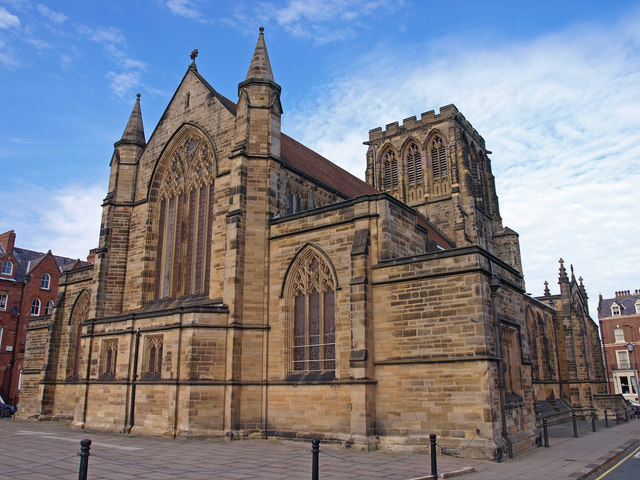The Church of St Hilda in Whitby stands as a testament to the enduring legacy of Saint Hilda, a pivotal figure in the Christianisation of Anglo-Saxon England. This sacred site not only serves as a place of worship but also as a beacon of the town’s rich spiritual heritage.Wikipedia
Historical Background
Saint Hilda, born in 614, was a noblewoman who became the founding abbess of the monastery at Whitby, then known as Streoneshalh, in 657. Under her leadership, the monastery became a centre of learning and spiritual guidance. Hilda’s influence was so profound that she played a significant role in the Synod of Whitby in 664, a crucial event that aligned the English Church with Roman practices.
Architectural Significance
The current Church of St Hilda, located in Victoria Square, Whitby, is a Grade II listed building, reflecting its architectural and historical importance. Consecrated in 1925, the church was designed in the 13th-century Gothic style, inspired by the ruins of the historic Whitby Abbey. Its elevated position offers a commanding view of the town, symbolising its spiritual oversight.
Community and Worship
St Hilda’s Church serves as a vibrant hub for the local Roman Catholic community, encompassing Whitby, Sleights, Robin Hood’s Bay, and surrounding villages. As part of the Diocese of Middlesbrough, the church offers regular Masses and spiritual services, fostering a sense of unity and faith among parishioners. sthildascatholicwhitby.com
Legacy of Saint Hilda
Saint Hilda’s legacy extends beyond the confines of the church. Her contributions to education, particularly in nurturing future bishops and promoting Christian poetry, have left an indelible mark on English religious history. Legends abound, such as the tale of her turning snakes into stone, symbolised by the ammonite fossils found along the Whitby coast, known scientifically as Hildoceras.
Visiting the Church
Visitors to Whitby are encouraged to explore the Church of St Hilda, not only to appreciate its architectural beauty but also to connect with the spiritual legacy of one of England’s most revered saints. The church continues to be a place of reflection, community gathering, and historical significance, embodying the enduring spirit of Saint Hilda.
In summary, the Church of St Hilda in Whitby is more than a historical monument; it is a living testament to the town’s spiritual journey and the lasting impact of Saint Hilda’s devotion and leadership.

